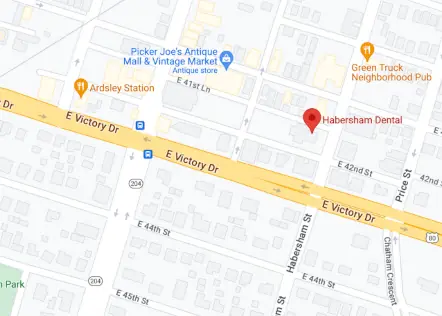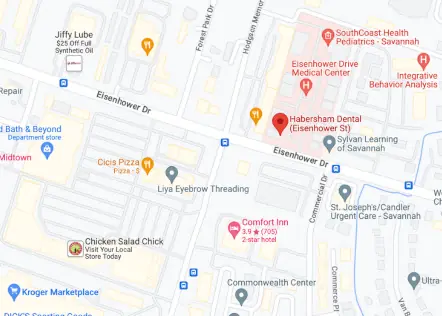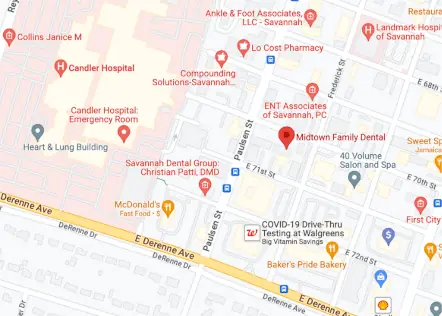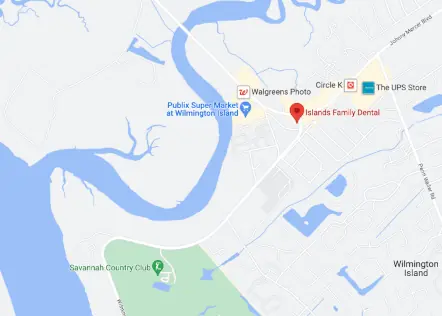Dental Implants in Savannah, GA
Dental implants offer a reliable and natural-looking solution for tooth replacement whether you need to replace one or many teeth.
Replace damaged, decayed, missing or broken teeth with Dental Implants near Savannah, GA
Dental implants stand out as among the top choices for tooth replacement due to their effectiveness. Crafted from titanium metal, they are surgically placed beneath the gumline. Over the following months, the surrounding bone fuses with the implants, securely anchoring them in place. This integration allows implants to serve as substitutes for the missing tooth’s root structure. Following this, an artificial tooth is affixed onto the implant, connected via a small metal piece known as an abutment.
Tooth loss presents numerous challenges for individuals. The top difficulties include chewing and speaking clearly. If left unaddressed, tooth loss can lead to serious complications such as tooth shifting, jawbone deterioration, loss of facial structure, and bite imbalances. These issues typically arise over time when there’s no root system to maintain bone health and alignment. Dental implants offer an artificial root system that not only addresses immediate challenges but also prevents long-term problems associated with tooth loss, ensuring proper order and alignment of remaining teeth.
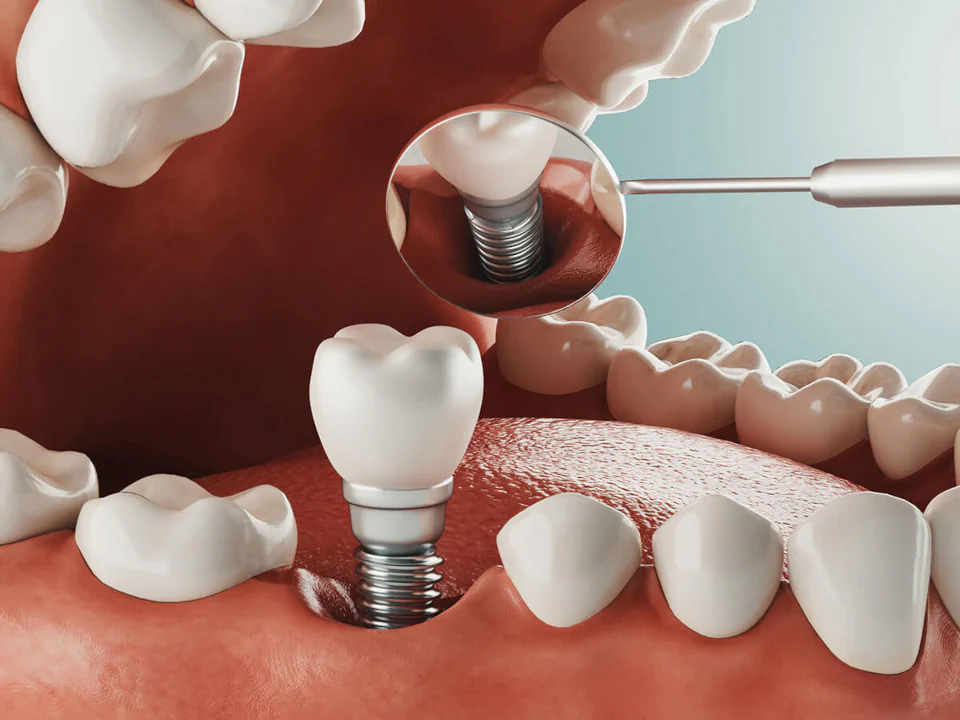
-
What types of dental implants exist?
Dental implants are an excellent option for replacing missing teeth. They can be used for a single tooth, multiple teeth, or even all your teeth. Depending on your needs, your dentist may recommend a single implant, multiple implants, an implant-supported bridge, or implant-supported dentures.
Endosteal dental implants are the most common type of dental implant. They consist of a titanium metal rod surgically placed into the jawbone and a supporting post designed to secure either a dental crown (for a single implant) or a dental bridge (for an implant-supported bridge).
All-on-4 dental implants (implant-supported dentures) are a revolutionary dental implant system in which an entire top or bottom denture is supported on just four implants. Each implant is strategically placed to ensure the replacement teeth remain stable and secure. Using four implants helps promote faster patient recovery and reduces the likelihood of complications from possible implant failure.
-
What is the procedure for dental implants?
The process of getting dental implants involves several steps that vary depending on your oral health, the number and type of implants, and whether any tooth extraction or bone grafting is required.
- Consultation and exam. We will conduct a comprehensive examination, including x-rays, to assess your oral health and medical history and discuss your treatment options.
- Tooth extraction. If necessary, we will remove the tooth or teeth being replaced by the implant(s) and perform a dental bone graft if there is bone loss around the extraction site. We may also perform a dental sinus lift or bone graft if your jawbone requires additional mass.
- Implant placement. The implant will then be surgically placed in the bone, and a healing cap will be placed over it to begin the healing phase. If you have any aesthetic concerns, we will place a temporary tooth before the implant crown is completed.
- Implant healing. During the healing phase, osseointegration occurs, whereby your jawbone heals around the dental implant, fusing with it and providing a solid base for your new artificial tooth. This process can take several months to complete.
- Abutment/crown placement. The abutment, the piece where your artificial tooth (crown) will be placed, will be attached to the implant, and the crown will be placed on the abutment.
-
How much does a dental implant cost?
Dental implant costs may vary depending on several factors, such as the number of teeth that need to be replaced, insurance coverage, and the extent of each implant procedure. If you have dental insurance, your out-of-pocket expenses may vary depending on your plan, coverage, and limitations. However, we can provide a cost estimate after your consultation appointment based on these factors. If you don’t have dental insurance, we strive to keep implants affordable by setting a fixed cost and offering flexible payment plan options.
See Accepted Insurance & Financing
Questions About Dental Implants?
If you're interested in dental implants or have any questions—contact us today.

